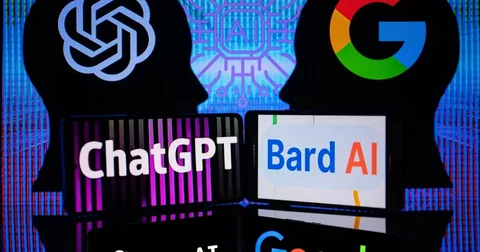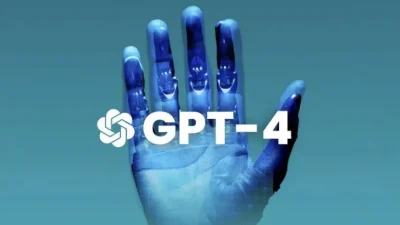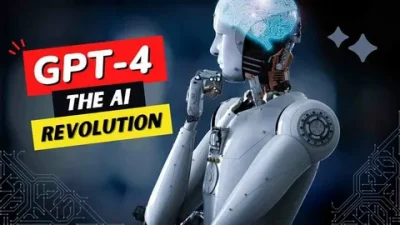Artificial intelligence has continued to revolutionize industries in 2025, with leading tech companies releasing cutting-edge models that redefine the boundaries of AI capabilities. OpenAI’s GPT-4, Google Bard, and Claude AI from Anthropic have emerged as some of the most discussed and widely adopted AI systems. This article provides a detailed comparison of these models, focusing on their features, use cases, strengths, and limitations, as well as their impact across various sectors.

The Evolution of GPT-4
OpenAI’s GPT-4 represents a significant leap forward in natural language processing (NLP). Building on the success of GPT-3 and GPT-3.5, GPT-4 introduces advanced reasoning capabilities, greater contextual understanding, and the ability to handle multimodal inputs. With its fine-tuned architecture, GPT-4 excels in generating coherent, contextually rich responses, making it a versatile tool for professionals and developers alike.
Key Improvements in GPT-4:
- Contextual Depth. GPT-4 processes longer and more intricate text inputs with improved coherence, maintaining relevance even in extended conversations.
- Multimodal Capabilities. Unlike its predecessors, GPT-4 handles text, image, and code inputs, broadening its application scope significantly.
- Fine-Tuning and Adaptability. The model offers industry-specific fine-tuning options, catering to specialized tasks in medicine, law, education, and more.
- Enhanced Reasoning. Logical and analytical reasoning is notably better, enabling GPT-4 to solve complex problems in mathematics, engineering, and research domains.
Google Bard: A Powerful Contender
Google Bard emerged as a direct competitor to GPT-4, boasting its integration with Google’s vast data infrastructure. Designed to facilitate real-time query processing and contextual answers, Bard leverages Google’s proprietary Transformer architecture to deliver precise and informative outputs.
Distinct Features of Google Bard:
- Real-Time Data Integration. Bard uses Google Search’s live data to provide up-to-date and accurate responses, a feature that GPT-4 currently lacks due to its training data cutoff.
- Efficiency in Query Responses. Tailored for quick answers, Bard excels in short-form content generation and direct information retrieval.
- Cross-Platform Synergy. Seamlessly integrates with Google Workspace, offering enhanced productivity tools for collaborative projects.
- Accessibility. Bard’s free tier, supported by Google’s resources, makes advanced AI accessible to a broader audience.
Claude AI by Anthropic: A Focus on Safety and Ethics
Anthropic’s Claude AI prioritizes ethical AI development and user safety, setting it apart in an increasingly competitive market. Claude AI incorporates Anthropic’s “Constitutional AI” approach, ensuring the model adheres to predefined ethical principles and avoids generating harmful or biased content.
Core Attributes of Claude AI:
- Ethical Alignment. Designed to minimize biases and harmful outputs, Claude AI sets a benchmark for ethical AI usage.
- Simplified Interfaces. Offers a user-friendly interface tailored for non-technical users.
- Robust Security Features. Prioritizes data privacy, making it ideal for sensitive applications in healthcare, finance, and legal sectors.
- Educational Applications. Focuses on providing accurate, bias-free educational assistance to students and educators.
Comparative Analysis: Strengths and Weaknesses
Each model has its unique strengths and potential limitations, making them suited for distinct use cases. Below is a detailed comparison:
| Feature/Aspect | GPT-4 | Google Bard | Claude AI |
|---|---|---|---|
| Launch Year | 2025 | 2025 | 2025 |
| Architecture | Transformer-based, multimodal | Proprietary Transformer, real-time data | Transformer, Constitutional AI |
| Primary Use Cases | Content creation, research, coding | Quick information retrieval, productivity tools | Ethical applications, education |
| Strengths | Multimodal inputs, contextual depth | Real-time updates, Google integration | Ethical alignment, data privacy |
| Limitations | No real-time internet access | Limited contextual depth for long texts | Narrower scope of applications |
| Accessibility | Subscription-based | Freemium model | Limited free access |
GPT-4’s Role in Specialized Industries
GPT-4 has been particularly transformative in industries requiring high levels of contextual understanding and precision. Some of its notable applications include:
- Healthcare. Assisting doctors by generating patient-specific treatment recommendations and analyzing complex medical data.
- Legal. Drafting legal documents and summarizing case files with accuracy.
- Education. Providing personalized learning experiences, tutoring, and generating academic materials.
- Coding and Development. Writing efficient, bug-free code snippets, debugging existing code, and offering programming tutorials.
Google Bard’s Productivity-Driven Approach
Google Bard excels in environments where speed and efficiency are critical. Its integration with Google’s ecosystem provides seamless support for:
- Corporate Workflows. Automating repetitive tasks like email responses and schedule management.
- Customer Service. Offering instant, relevant responses to customer queries.
- Short-Form Content Creation. Generating concise summaries, FAQs, and press releases.
- Research Assistance. Leveraging live data to answer complex queries with the latest information.
Claude AI’s Ethical Commitment
Claude AI has found a niche in applications where safety, ethics, and user trust are paramount. Key areas of deployment include:
- Healthcare Privacy. Ensuring sensitive patient data remains secure during analysis and report generation.
- Finance. Offering financial advice while adhering to strict ethical standards.
- Education. Providing accurate and unbiased learning support for students.
- Community Building. Facilitating inclusive and respectful conversations on public platforms.
Conclusion
The release of GPT-4, Google Bard, and Claude AI in 2025 marks a pivotal year for AI development. While GPT-4 leads with its advanced contextual understanding and multimodal capabilities, Google Bard offers unmatched real-time data integration, and Claude AI sets new standards for ethical and safe AI deployment. Each model addresses unique needs, ensuring that users across diverse sectors have access to tailored solutions.





